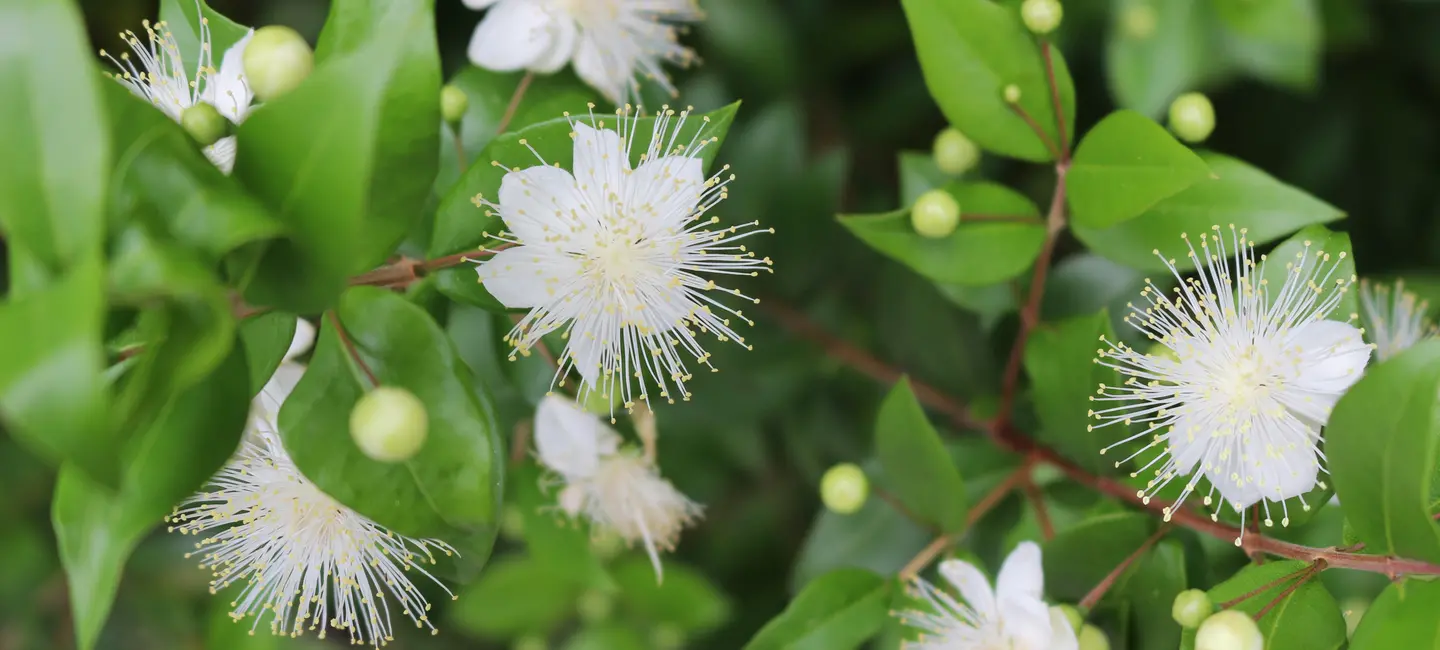
Myrcia is a medium-sized shrub that grows in parts of central and southeastern Brazil. Some Myrcia species also grow in other South American countries, including Bolivia, Peru, and Paraguay.
Myrcia is used for diabetes, diarrhea, hemorrhage, high blood pressure, and other conditions, but there is no good scientific evidence to support its use.
Is It Effective?
NatMed Pro rates effectiveness based on scientific evidence according to the following scale: Effective, Likely Effective, Possibly Effective, Possibly Ineffective, Likely Ineffective, Ineffective, and Insufficient Evidence to Rate.
- Diabetes. Early research shows that drinking an herbal tea containing Myrcia uniflora does not improve blood sugar or insulin levels in people with or without diabetes.
- Diarrhea.
- Bloody diarrhea.
- Inflamed intestines.
- Bleeding.
- High blood pressure.
- Mouth ulcers.
- Other conditions.
More evidence is needed to rate Myrcia for these uses.
Is it Safe?
Myrcia might reduce how much sugar is absorbed by the stomach. This might help lower post-meal blood sugar levels in people with diabetes.
When taken by mouth: There isn't enough reliable information to know if Myrcia is safe or what the side effects might be.
Special Precautions & Warnings:
Pregnancy and breast-feeding: There isn't enough reliable information to know if Myrcia is safe to use when pregnant or breast-feeding. Stay on the safe side and avoid use.
Underactive thyroid (hypothyroidism): Myrcia might decrease the production of thyroid hormone. This might worsen symptoms in people who already have low thyroid hormone levels.
Levothyroxine (Synthroid, others)
Interaction Rating=Moderate Be cautious with this combination.
Myrcia might reduce how much thyroid hormone the body produces. Levothyroxine is used to increase thyroid hormone levels in people whose levels are too low. In theory, taking Myrcia with levothyroxine might reduce how well levothyroxine works.
There are no known interactions with herbs and supplements.
There are no known interactions with foods.
The appropriate dose of Myrcia depends on several factors such as the user's age, health, and several other conditions. At this time there is not enough scientific information to determine an appropriate range of doses for Myrcia. Keep in mind that natural products are not always necessarily safe and dosages can be important. Be sure to follow relevant directions on product labels and consult your pharmacist or physician or other healthcare professional before using.
Cambui, Myrcia multiflora, Myrcia salicifolia, Myrcia uniflora, Pedra Hume, Pedra Hume Caa.
Information on this website is for informational use only and is not intended to replace professional medical advice, diagnosis, or treatment. While evidence-based, it is not guaranteed to be error-free and is not intended to meet any particular user’s needs or requirements or to cover all possible uses, safety concerns, interactions, outcomes, or adverse effects. Always check with your doctor or other medical professional before making healthcare decisions (including taking any medication) and do not delay or disregard seeking medical advice or treatment based on any information displayed on this website.
© TRC Healthcare 2024. All rights reserved. Use and/or distribution is permitted only pursuant to a valid license or other permission from TRC Healthcare.
